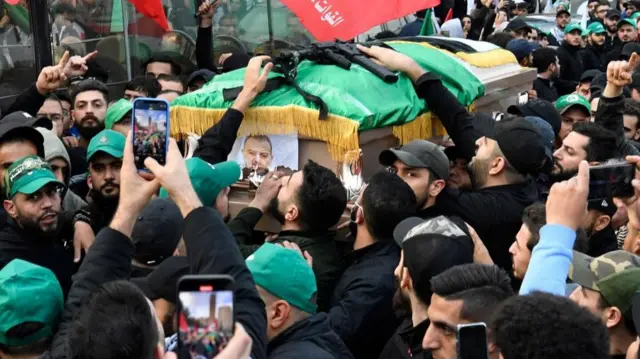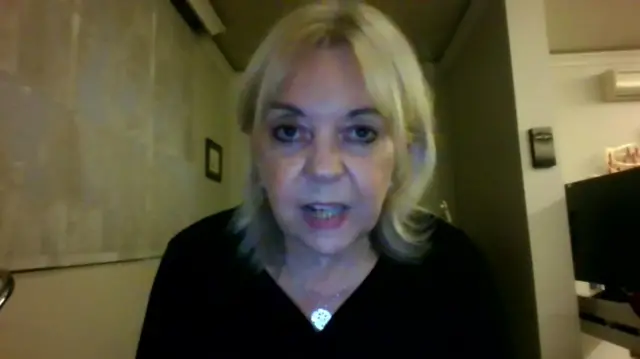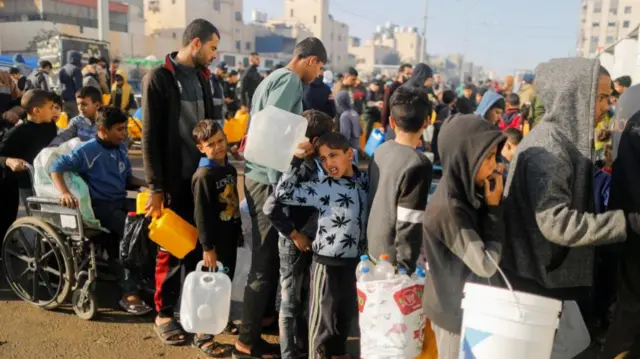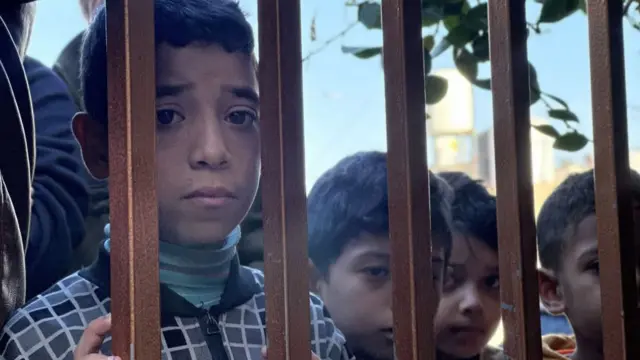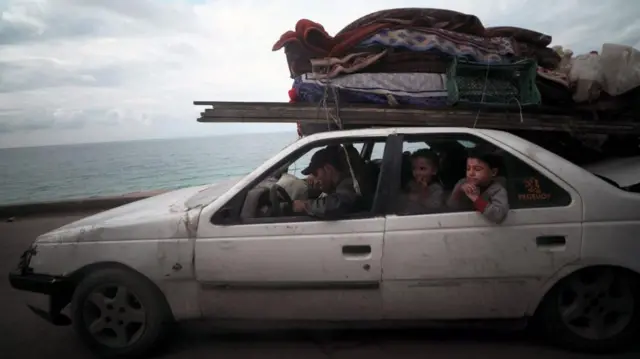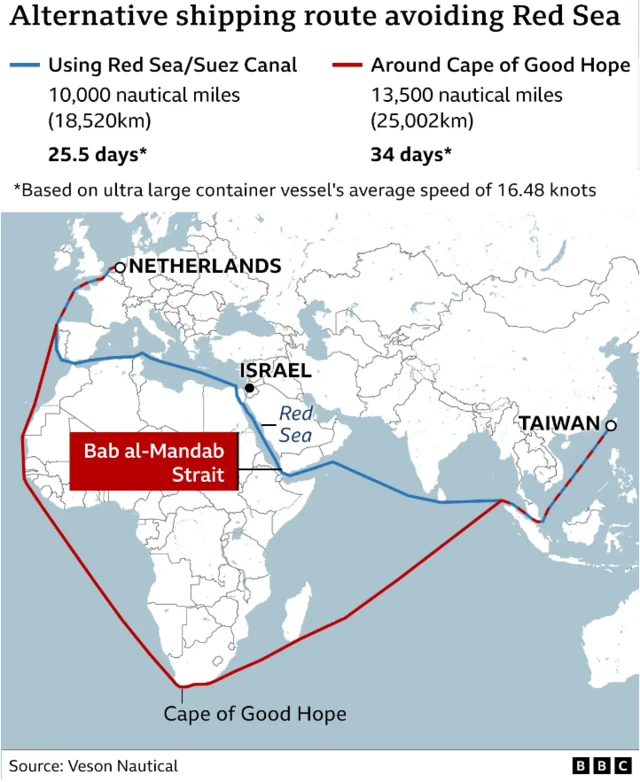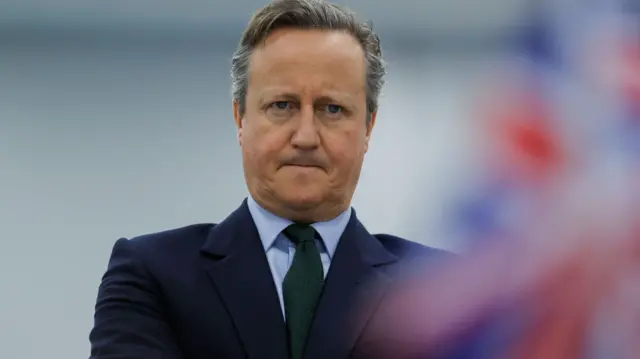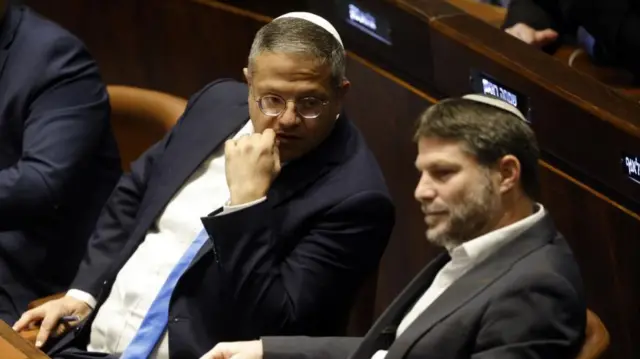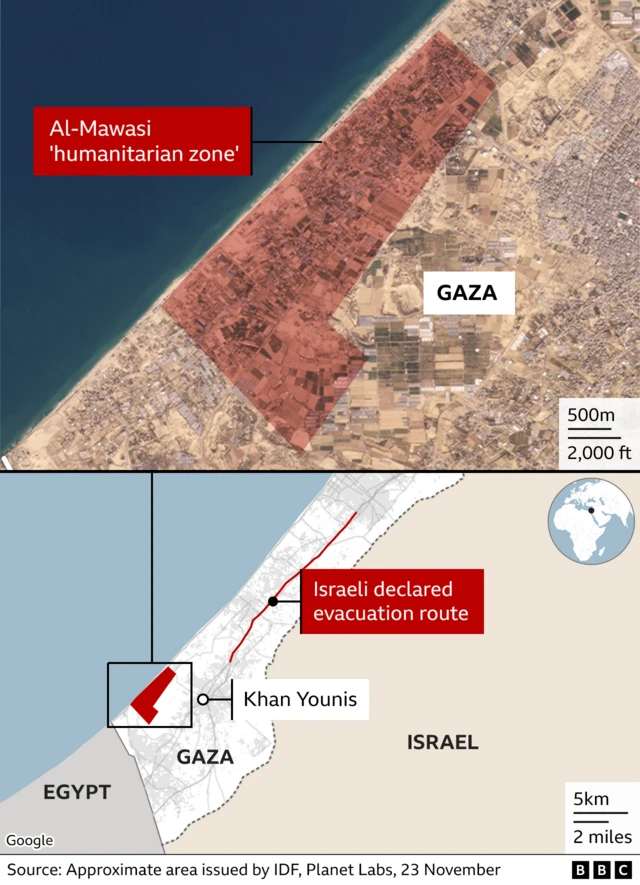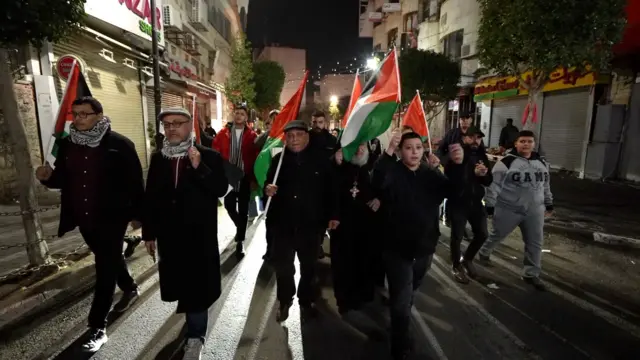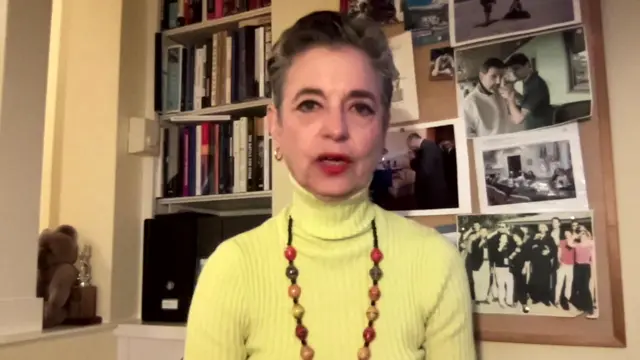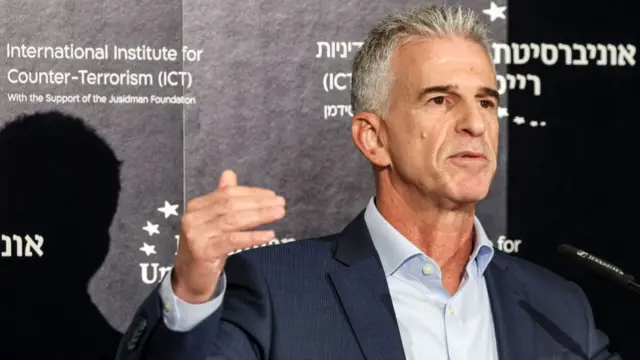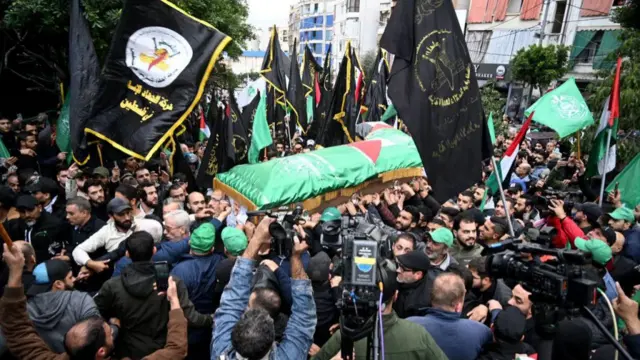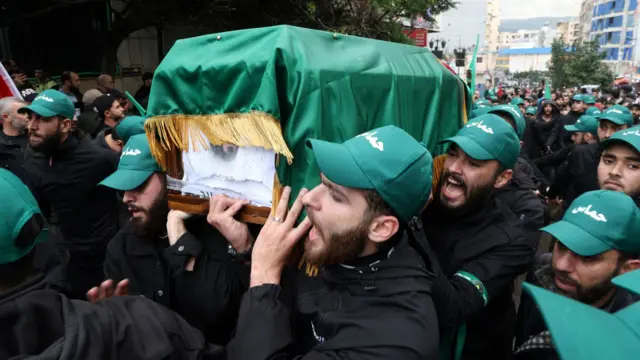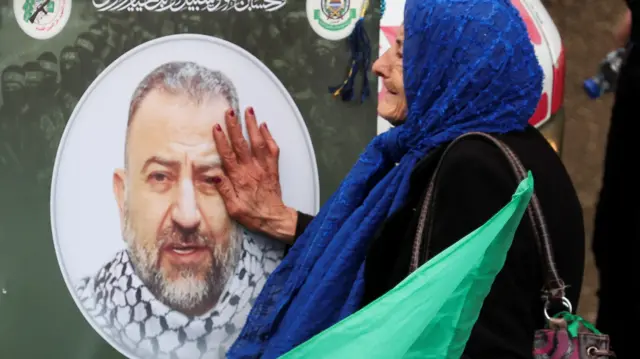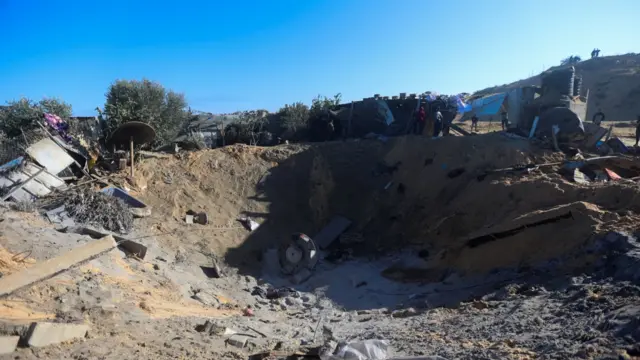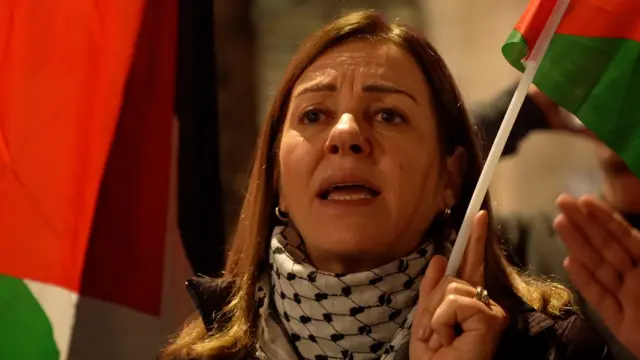What has happened today?published at 17:47 GMT 4 January 2024
Thank you for following our coverage of the latest developments in the Gaza-Israel war - we will close this page shortly.
This is what happened today:
- The Hamas-run health ministry in Gaza has said 22,438 people have now been killed in Gaza since the Hamas attacks on Israel on 7 October
- The ministry also said that 14 people were killed in a blast at al-Mawasi, near Khan Younis
- Al-Mawasi is a narrow strip of land in the south of the Gaza Strip which has few buildings and largely consists of sandy dunes and agricultural land. It was designated a safe zone by the Israel Defense Forces (IDF) last year, though humanitarian agencies criticised the choice
- The IDF has announced it has killed Mamdouh Lolo, a senior member of the Palestinian Islamic Jihad (PIJ)
- In Lebanon, the funeral of assassinated deputy Hamas leader Saleh al-Arouri has taken place. Our Middle East correspondent Hugo Bachega said that many Lebanese citizens are now wondering how the killing will affect their country - read more from Hugo here.
There are concrete fears that this conflict is expanding. Yemen's Houthis are defiant after several countries warned them not to continue their Red Sea attacks, while over in Lebanon Hezbollah has said that the death of Hamas Saleh al-Arouri "won't go unpunished".
If you would like to remind yourselves of the roots of this conflict, do read our explainer here: What is Hamas and why is it fighting with Israel in Gaza?
Today's coverage was brought to you by our teams in Jerusalem and London, thank you for joining us.

